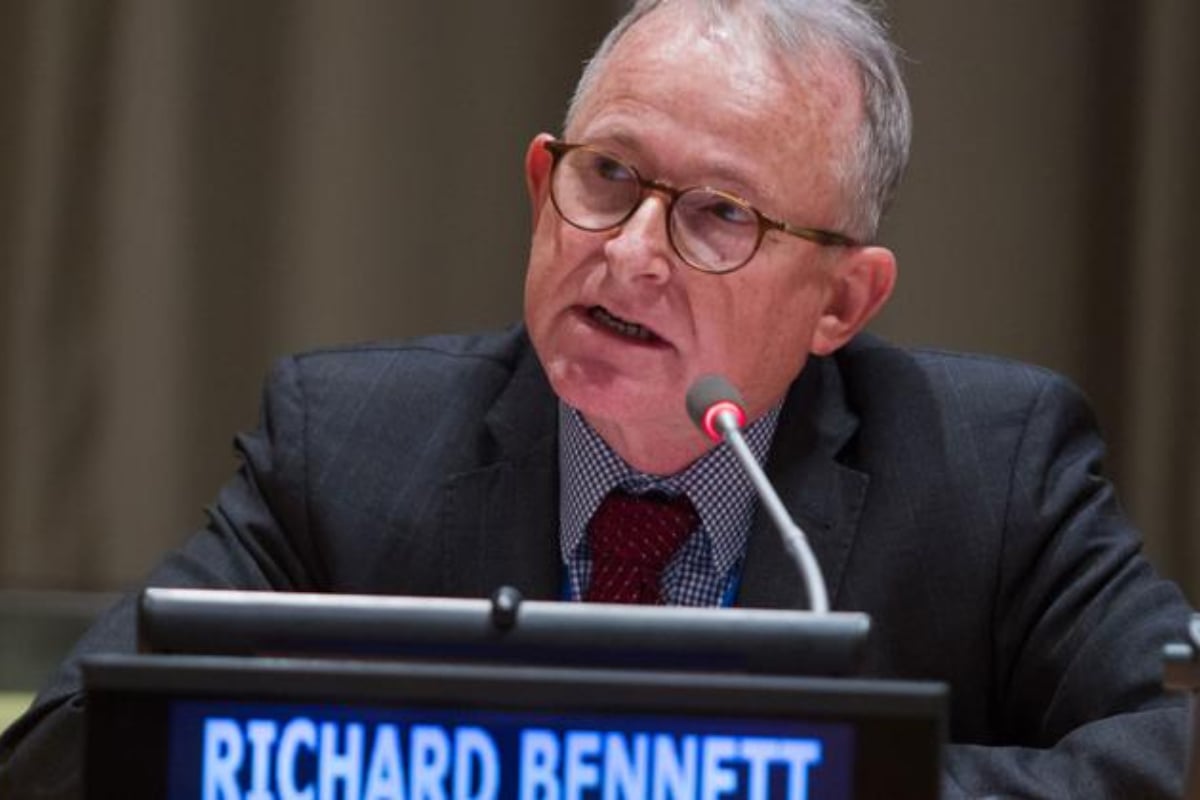UN expert opposes recognition of Taliban rule

UN expert
UNITED NATIONS: Governments moving to restore ties with the Taliban risk legitimizing oppression and deepening Afghanistan’s crisis, a UN human rights expert has warned, calling for a principled approach that defends the rights of women and girls.
Richard Bennett, the Special Rapporteur monitoring human rights in Afghanistan – who serves independently under a mandate of the Human Rights Council – told the UN General Assembly that the human rights situation in the country “continues to deteriorate with few grounds for optimism.”
He warned of intensifying gender persecution, a rise in corporal punishment, enforced disappearances and attacks against former officials despite a declared amnesty.
There are also increasing restrictions on media freedom and civil society, and discrimination against ethnic and religious minorities, including forced evictions affecting Hazara communities.
The UN expert noted that no Taliban edicts restricting women’s rights have been reversed.
“Many Afghan women are denied their right to work,” he said, pointing to recent moves preventing Afghan women working for the UN from entering UN compounds. “This is a serious breach of fundamental rights and the UN Charter’s principles of equality and non-discrimination.”
Bennett also criticized the sharp reduction in humanitarian and civil society funding, which he said is removing “the last lines of protection” for a population already facing widespread deprivation.
He urged governments to recommit to long-term, sustained support, particularly for Afghan and women-led organizations.
The Special Rapporteur further warned of the mass forced return of Afghan refugees, urging all States to respect the international legal principle of non-refoulement, which prohibits returning people to places where they face persecution or serious harm.
While the situation remains grave, Bennett highlighted signs of progress in accountability.
These include the International Criminal Court’s issuance of arrest warrants for senior Taliban leaders, and the Human Rights Council’s recent establishment of an independent investigative mechanism to collect and preserve evidence of serious crimes for future trials.
“Afghanistan is not a lost cause,” Bennett told delegates, stressing that accountability is an “essential part “of building a future rooted in justice, equality and the rule of law.
“Turning away now would not only betray the Afghan people – it would undermine the foundations of our shared international system,” he said.
He urged States to engage with Afghanistan “in a principled manner that avoids normalization of Taliban rule until there are demonstrated, measurable and independently verified improvements in the human rights situation – particularly for women and girls.”
Read More News On
Catch all the Business News, Breaking News Event and Latest News Updates on The BOL News
Download The BOL News App to get the Daily News Update & Live News.